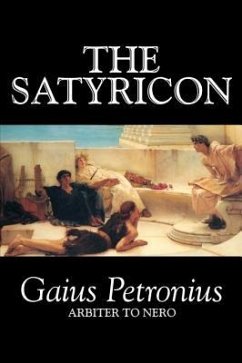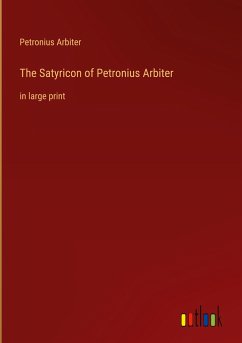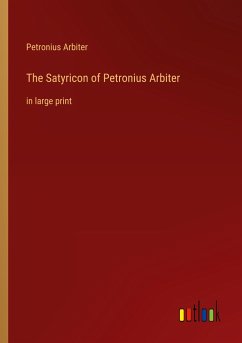THE SATYRICON OF
Gaius Petronius, Arbiter to Nero Petronius' bawdy masterpiece is considered by some to be an early form of the novel. Petronius had the notable job of advising Roman emperor Nero on style and fashion. After an unfortunate falling-out with Nero, Petronius was forced to commit suicide. Belated revenge came in the form of his will, which when read aloud in the Roman Forum, viciously mocked the mostly-mad emperor. "The Satyricon" is a "satire," intended to provoke laughter as well as disgust or censure. It has given our modern society much of the picture it has of Roman life beyond ancient monuments and Imperial inscriptions. A thinly-veiled exaggeration of reality, "The Satyricon" makes the days of doomed Herculaneum and Pompeii real -- and paints unforgettable pictures of Roman excess, including Trimalchio's famous feast.
Gaius Petronius, Arbiter to Nero Petronius' bawdy masterpiece is considered by some to be an early form of the novel. Petronius had the notable job of advising Roman emperor Nero on style and fashion. After an unfortunate falling-out with Nero, Petronius was forced to commit suicide. Belated revenge came in the form of his will, which when read aloud in the Roman Forum, viciously mocked the mostly-mad emperor. "The Satyricon" is a "satire," intended to provoke laughter as well as disgust or censure. It has given our modern society much of the picture it has of Roman life beyond ancient monuments and Imperial inscriptions. A thinly-veiled exaggeration of reality, "The Satyricon" makes the days of doomed Herculaneum and Pompeii real -- and paints unforgettable pictures of Roman excess, including Trimalchio's famous feast.








